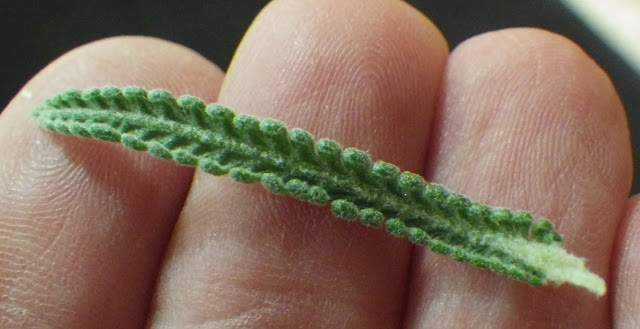 |
| Purple Heron, Ardea Purpurea |
 |
| Limpkin, Aramus guarauna |
I first met Caesar Weed some half a dozen years ago during a horticultural class I took at Palm Beach State College. It was a full semester of all kinds of weeds—the majority of which, I was mildly irritated to find out, grew in my own yard.
The fact that there is a wild-growing vacant lot across the street from our home probably had something to do with it.
Most of the weeds were also what I would call “wild flowers.” The plants grew during specific months of the year and tended to spread out horizontally, sending down rootlets along the stems as they grew. The flowers were small, usually about the same size as the nail on my pinky finger.
The flowers, close up, however, made up for their size with their colours and petal configurations. What appeared as a spot of yellow or purple in the middle of a green patch turned out to be unexpectedly complex arrangements of unusually shaped petals. The stamens were frosted with vivid pollen grains.
Most of the names of the grasses and plants and sedges have escaped my conscious mind. Caesar Weed, for some reason, is an exception.
I think it is because of the leaves. They are stiff and covered with minute hairs that give them the feel of fine sandpaper. Long after I pick a plant to take it home and photograph it, the leaves are ridged and the flowers pristine. Most weeds, once separated from their roots, begin immediately to wilt and the flowers to close up.
Green Deane, a blogger, (www.eattheweeds.com/caesar-weed-sampler/) writes that Caesar Weed, Urena lobster, is also called burr mallow or pink burr, and is edible. The plant was imported to grow as a source of food. The blooms are edible, as are the young leaves. The root can be boiled and the tea used in place of aspirin or used for stomach ache--it is also an anti-bacterial. Unfortunately, it is no longer harvested, being considered "famine food," and is labeled invasive. It grows equally well in marshes and in dry soil when it rains enough. The leaves have "star shaped hairs" on the back so that even cows, who have no teeth on their bottom jaw, won't eat them. (end quote)
I also remember the plant because in the far corner of my yard, on a neighbor’s side of the chain link fence, is a respectable stand of Caesar Weed. I do my best to keep the plant away from the clusters of pineapple plants growing in that corner—but I don’t really mind that my efforts haven't eradicated the plant entirely.
I like the fact that I remember its name. I like to feel the leaves when I rub one between my fingers. I love the tiny, purple blooms that pepper the long stems. I like that the plant reminds me of the few years ago when I was taking classes every semester and learning about the plants and trees that grow around me.
I like learning—and Caesar Weed will always be a part of that time in my life.
I don’t have many close friends, and this weed feels like a friend every time I see it.
The birds are another matter. Both are unfamiliar to me. Reading about them tells me that they are plentiful in Florida—but I don’t frequent the marshes where they spend their time. I love getting photos of birds from Florida a place where ibis are as common as robins in the North.












